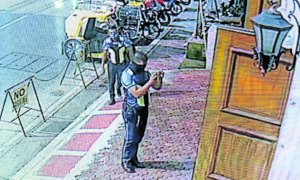MANILA, Philippines — The government is now discouraging people with mild cases of COVID-19 or infected but showing no symptoms from self-confinement due to the risk of spreading the coronavirus to members of their families.
Cabinet Secretary Karlo Nograles, cochair of the Inter-Agency Task Force for the Management of Emerging Infectious Diseases, announced the policy shift on Sunday, citing the dangers of self-isolation in mild and asymptomatic cases of COVID-19.
“We are now discouraging home quarantine. The danger of home quarantine is contracting the disease. There is a bigger danger that the disease will spread among family members,” Nograles said in a radio interview.
Pressure on hospitals
Earlier, the Department of Health (DOH), trying to ease pressure on the country’s health-care system, said mild or asymptomatic COVID-19 cases could self-isolate, but they should have their own room, bathroom, and have no contact with members of their families.
All of the large hospitals in Metro Manila have reported nearing capacity due to a surge in coronavirus infections in recent days.
Home quarantine is longer than the normal 14-day isolation prescribed by health authorities. It is 28 days and the self-confined patient is closely monitored by barangay health officers.
The government has built makeshift quarantines for mild and asymptomatic COVID-19 cases in large venues for public events like the Philippine International Convention Center, Rizal Memorial Stadium, and World Trade Center.
These quarantines have a combined capacity of 3,193 beds, of which 1,235 or 38.76 percent were occupied as of July 10.
Local governments have also built their own quarantines for such cases, with a combined capacity of 70,029 beds, of which 17,806 or 25.43 percent were occupied as of the same date.


